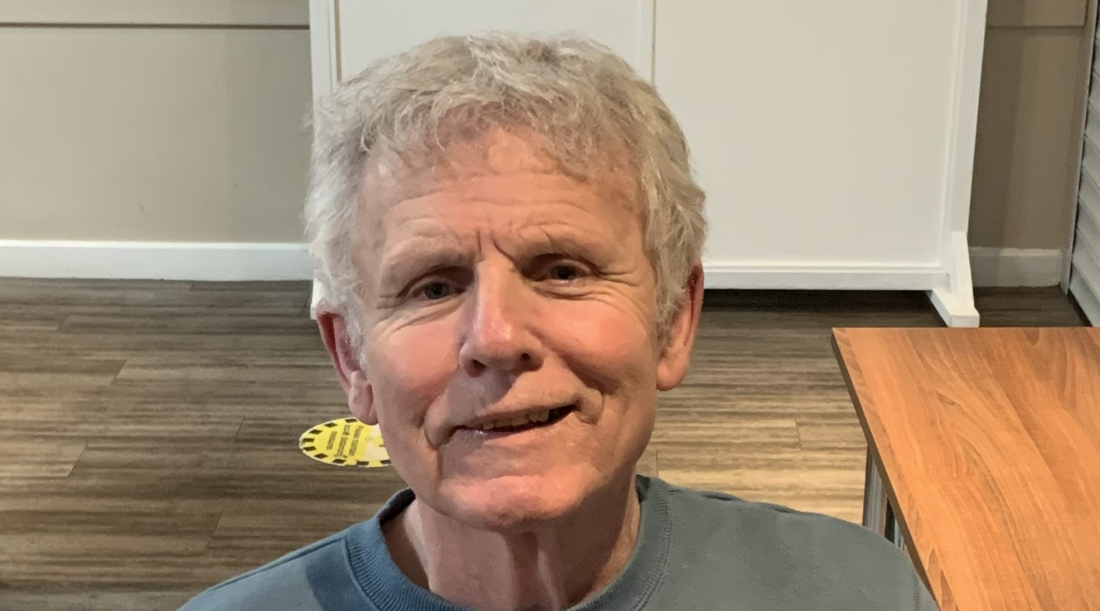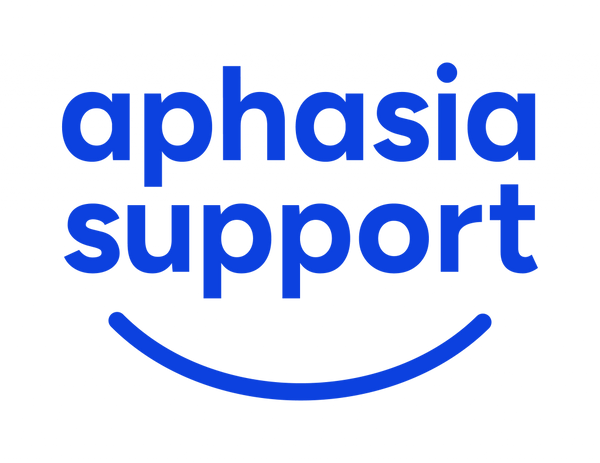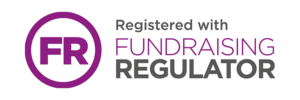Frank Senior

For Frank, 2010 was the start of a devastating series of events.
That year he was made redundant, and not long after, his mum passed away. These life-changing events happened so close together, and the natural build-up of emotions made Frank very aware of his mental health. Suddenly in January 2011, Frank suffered a stroke.
Aged 56, Frank was left unable to walk or talk.
Frank’s wife Lyn described the heartbreak when she realised “his eyes were open but there was nobody there.” Life as they knew it changed overnight. Following a five month stay in hospital, the consultant recommended that Frank should reside in a care home as he would never walk or talk again. Feeling like the only one left fighting for Frank, Lyn took him home and continues to do everything she can to care for him – practically, physically and emotionally.
Soon after Frank lost his independence, he noticed people were treating him differently.
Whilst he wasn’t able to walk or talk, he hadn’t lost his comprehension. And whilst his GP was outstanding, their hospital visits were very different. Lyn recalls attending appointments with Frank where he was made to feel insignificant, as if he “wasn’t worth the taxpayers money.” This continues to have a huge effect on Frank’s mental health. Lyn said “as nobody could understand Frank, the practitioners often didn’t even acknowledge his presence in the room. One time, I remember Frank being sat right next to me, but because he couldn’t speak for himself, the staff ignored him and only wanted to talk to me. It had a huge impact on Frank because he was listening to, and could understand, everything that was being said. Because they didn’t involve him in the conversation, he ended up in tears.” With little to no outside support, they took great comfort in having each other.
Frank found the first three years post-stroke incredibly overwhelming.
It took everything he had to learn how to accept and adjust to a ‘new normal’ whilst understanding the ‘good and bad’ sides of his brain. In the midst of Frank’s recovery, the family received some more devastating news. In April 2015, Frank’s son passed away. His son had struggled ever since his own mother had passed. The following year, in 2016, Frank’s sister died. Frank says that dealing with the death of his own son, sister and mother contributed to his ill health and ultimately his stroke. Words cannot describe the impact this had, especially on Frank’s mental health. It was hard for Frank to see the light at the end of the tunnel. Despite asking for help, there was no support available.
This difficult period saw him put his energy into computer programming. Frank was already tech-savvy, but he spent hours and hours learning how to build his very own communication aid. The program reads aloud to help Frank join in conversations and communicate topics of interest. That’s exactly how Frank shared his passion to promote wellbeing and mental health among people with Aphasia.
Twelve years on from his stroke, Frank has made heaps of progress.
After just a few years, he learnt how to drive an adapted car and quickly got back on the road, gaining back his independence. Nowadays, Frank can say the odd word – he’s learnt how to gesture, and how to communicate by drawing or writing using a pen and paper. More often than not, his trusted computer is by his side. Nevertheless, you can see the frustration when he’s trying so hard, but just can’t communicate what he wants to say; and you can see the joy on his face when someone has the time, patience and intuition to help understand and articulate.
Making the world a better place for people with Aphasia and their carers.
A few years ago, a close friend referred Frank to a Barnsley Aphasia Café ran by Yorkshire-based charity, Aphasia Support. The group meets twice a month at Barnsley Metrodome, and welcomes local people with Aphasia, and their carers. It’s a safe space focussed on improving knowledge, confidence, communication and wellbeing whilst being among others who understand. Frank and Lyn developed a special bond with the team at Aphasia Support, and made friends who now feel like family.
For Frank and Lyn, life has improved over the past twelve years. They cherish their weekends soaking up the sea breeze on the coast, and time spent with family and friends. But the weight of Aphasia comes in waves, and the emotions are often hard to overcome. It takes strength and resilience, and it’s helped by being met with compassion.

